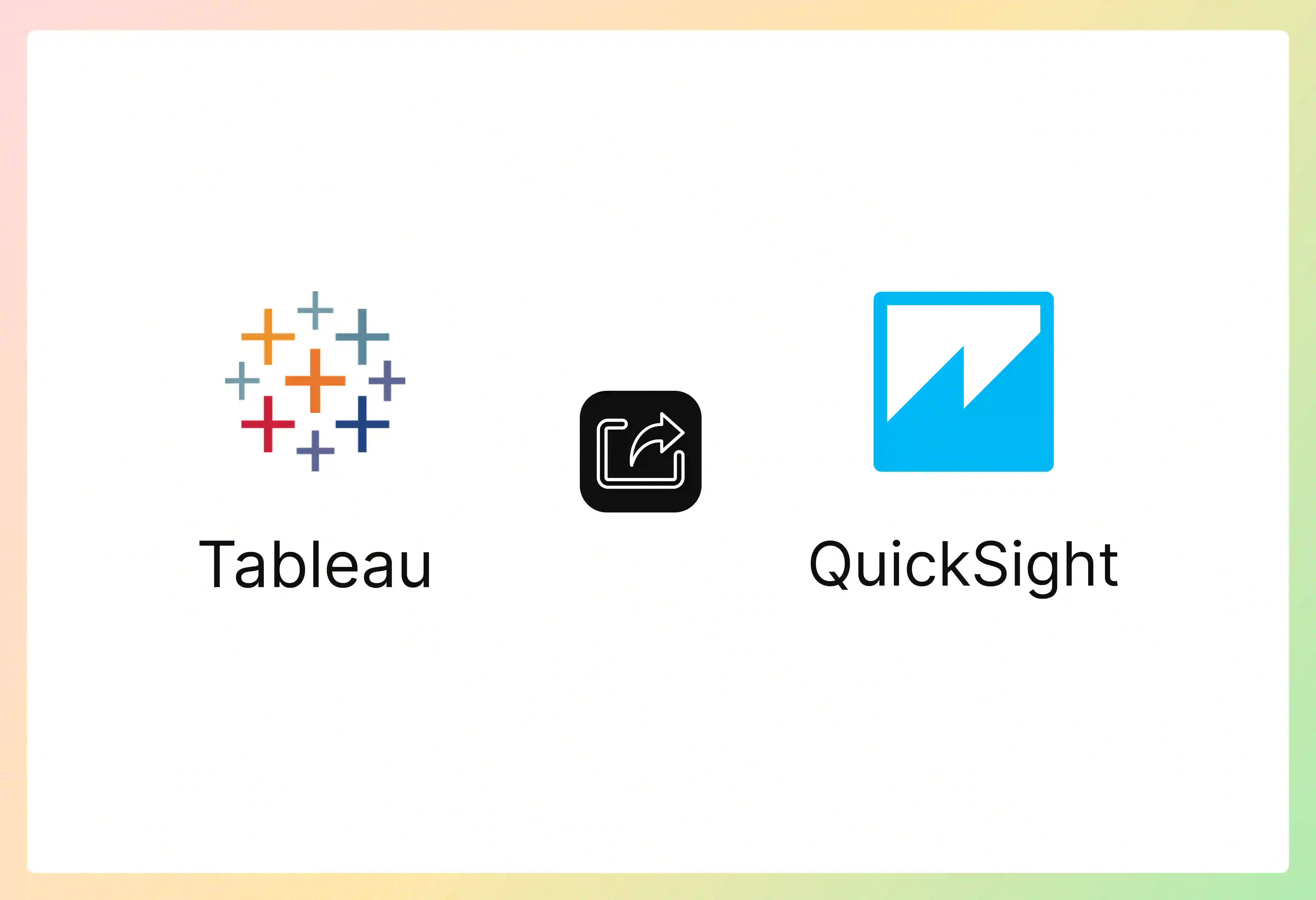
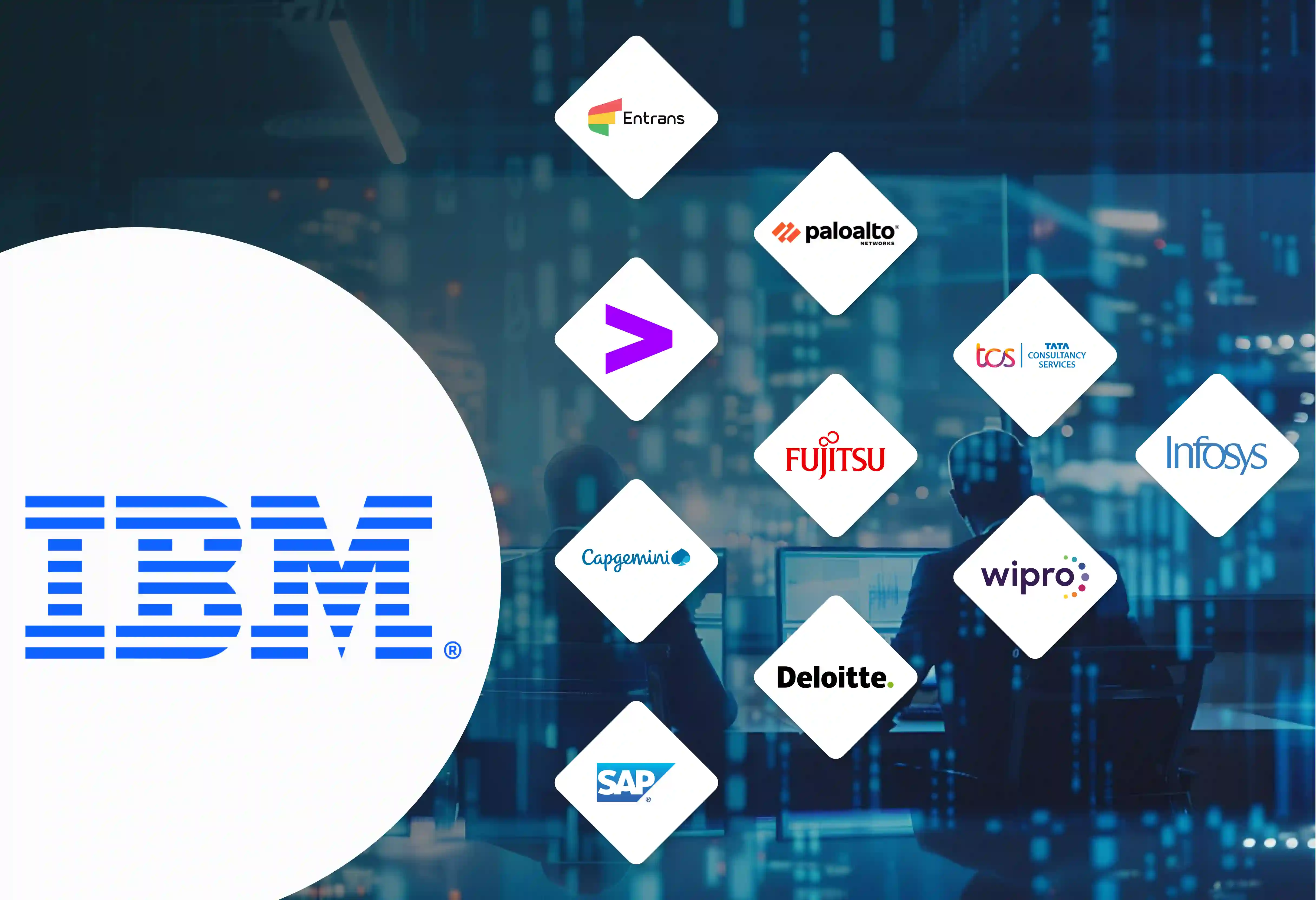

International Business Machines (IBM) Corporation is an institution in the IT space. In fact, for decades, IBM Consulting has used its deep technical history to showcase this.
That said, the global IT consulting field is changing in a fundamental way. IT is now driven by artificial intelligence, hybrid cloud complexity, and widespread cybersecurity threats.
In this blog, we’ll explore the 10 top IBM competitors and alternatives in 2025 to look at. We’ll do this to help you decide which are worthy contenders to look at for IBM-like requirements.
IBM Consulting has deep and broad abilities. It combines its own modern technologies in hybrid cloud and AI into its services. It is an established company actively reinventing itself to maintain its leadership in a strongly competitive market.
Yet, many companies look for IBM competitors that better fit their specific needs. Our selection of the leading IBM competitors is based on the distinct advantages and value they bring to the market. We have grouped them by several key types:
Entrans competes with giants like IBM not on size, but in speed, specialization, and nimbleness.
This top IBM competitor targets clients who need deep, specific expertise in modern domains like generative AI. These clients may find the cost structure or engagement model of a large consultancy a poor fit for their needs.
The value Entrans presents centers on supplying top-tier engineering talent to solve high-value problems. This model is a clear contrast to larger, more generalized companies similar to IBM.
A key piece of evidence of its ability is the development of its own AI agent, Thunai. This agent was built and launched in under six months, showing the firm's technical skill and speed. This makes it one of the top IBM competitors and enterprises that help quickly deploy custom AI solutions.
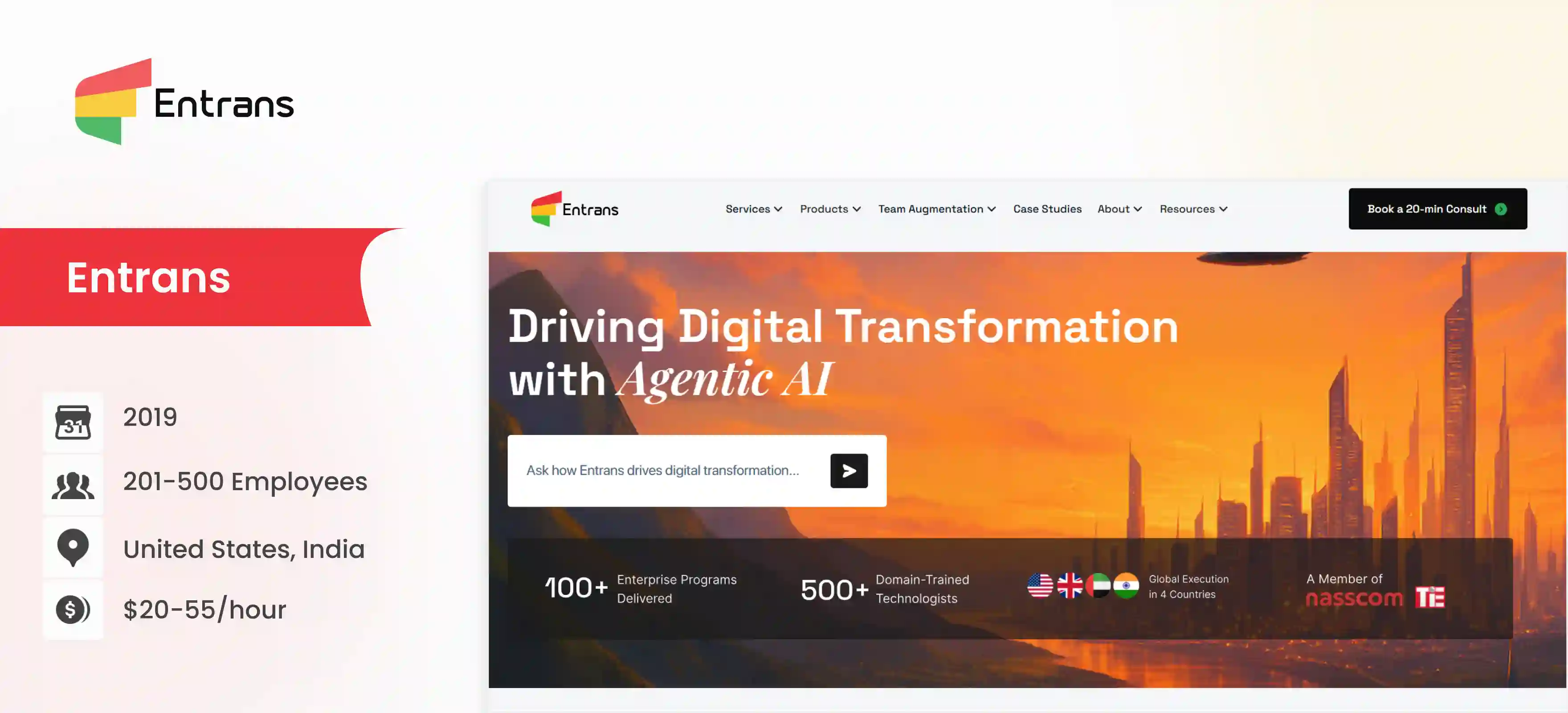
Accenture stands as arguably IBM's most direct and strongest competitor in the consulting field. As a Global Scale firm, it is a huge, multi-disciplinary company much like IBM. That said, it competes with IBM for the largest and most complex global business updates.
Accenture's competitive plan is built on assertive marketing and branding around the idea of reinvention.
A key point of difference is Accenture Song. The IBM competitors call it the world's largest technology-based creative group. This allows Accenture to engage with a different set of top executives, like the Chief Marketing Officer.
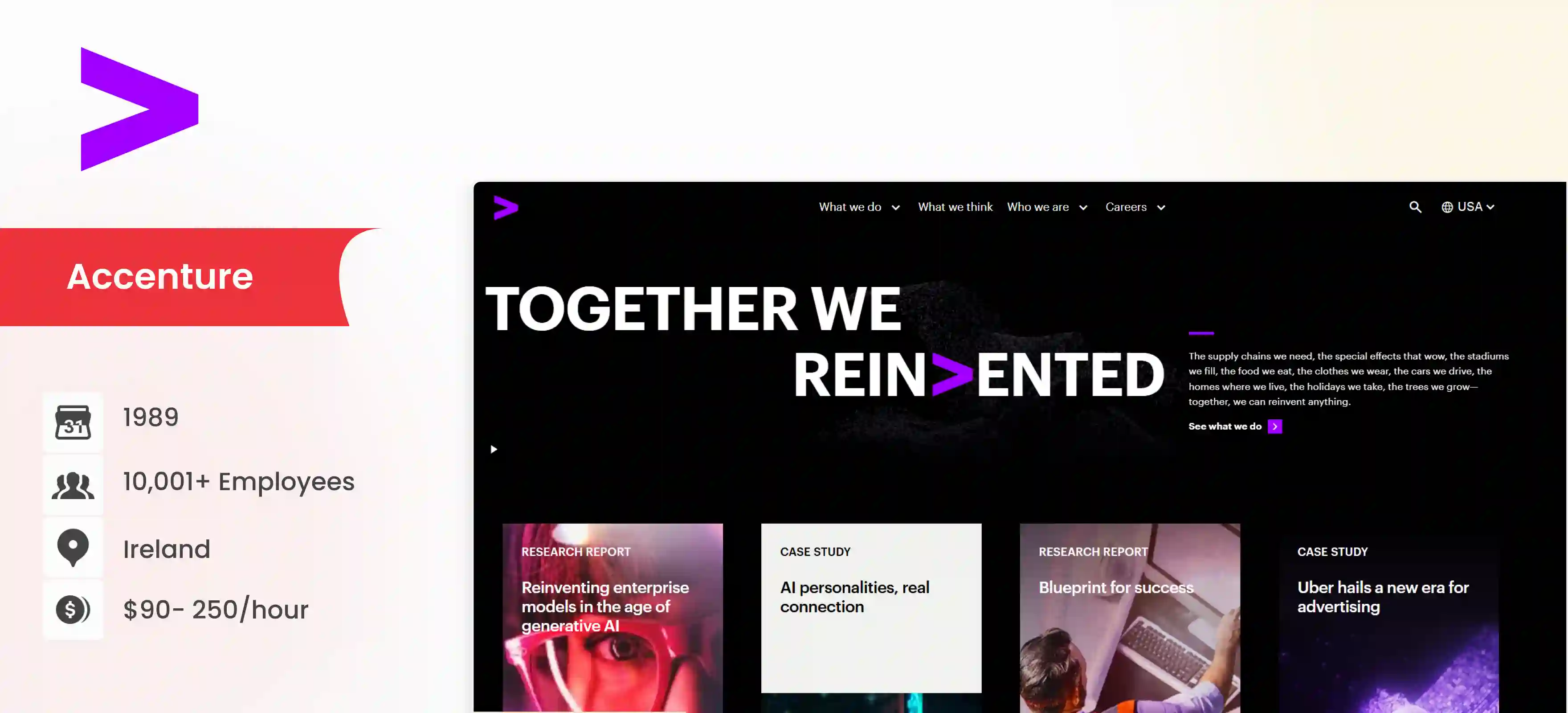
Headquartered in Paris, France, Capgemini is a major global player. It is a key Global Scale firm that competes directly with IBM across all IT services.
A key part of Capgemini's relationship with IBM is the model of partnership and competition. Capgemini is an IBM Platinum Business Partner, the highest designation.
This means Capgemini expertly uses IBM's main technologies, like hybrid cloud and AI, in the solutions it delivers. At the same time, it’s one of IBM's biggest competitors against it’s consulting division for the project contracts.
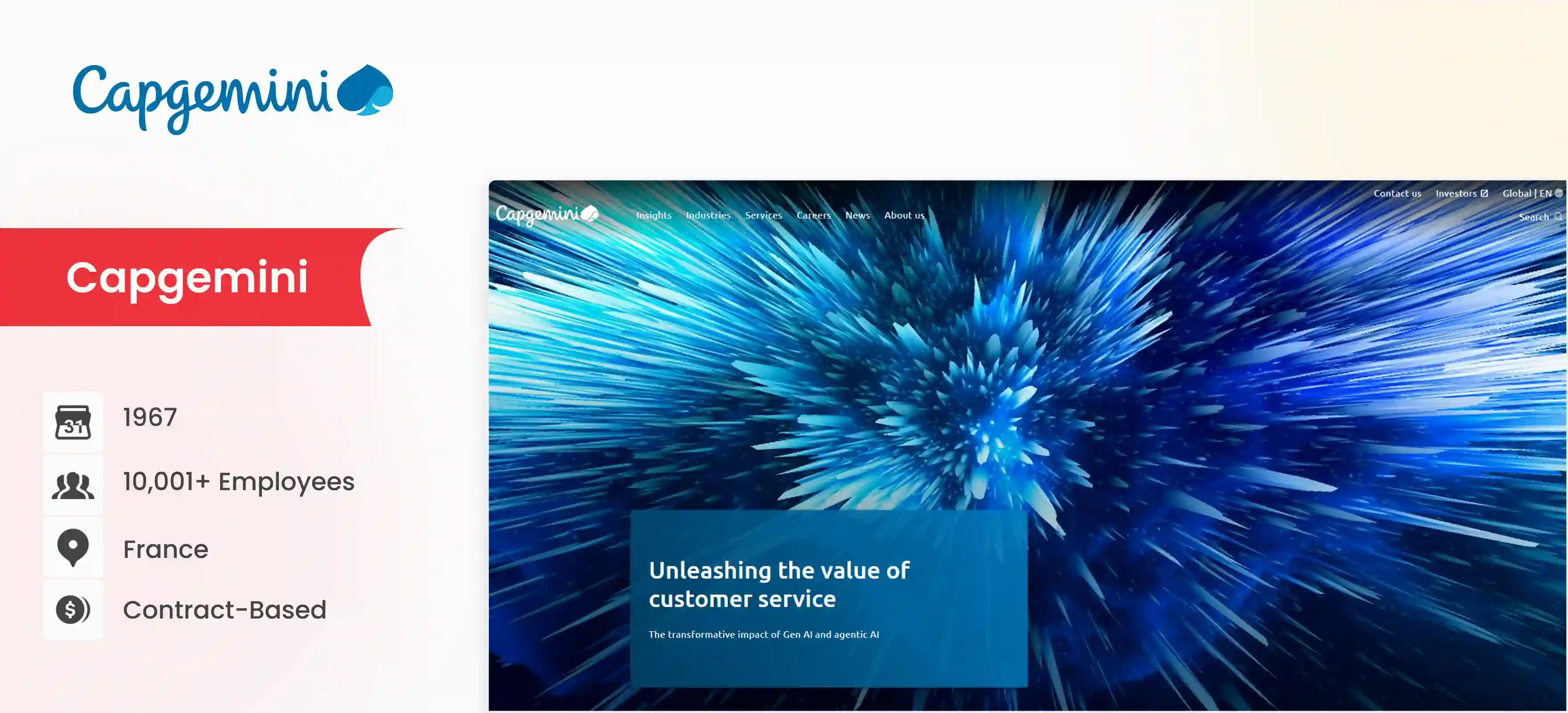
SAP is a Platform-Centric Challenger. Its competitive relationship with IBM is one of the most multi-layered examples of partnership and competition in the industry. SAP was founded in 1972 by five former IBM employees.
This IBM competitor has grown to become the world's largest seller of enterprise resource planning (ERP) software.
This makes IBM a key company for carrying out SAP's main platform work. At the same time, they are direct rivals for the large, high-margin consulting contracts these complex projects create.

Palo Alto Networks is a modern cybersecurity company. Its relationship with IBM has recently changed from direct competition to a deep, symbiotic partnership.
In the past, its security platforms competed directly with products in IBM's own security group, such as the QRadar SIEM solution. However, a new partnership announced in May 2024 fundamentally reshaped their connection.
Now, however, IBM Consulting is set to become the main global firm for setting up Palo Alto Networks' market-leading platforms. In the world of cybersecurity, however, Palo Alto has historically been one of the top IBM competitors worth considering.

Fujitsu is a Japanese multinational ICT corporation. It is the largest IT services seller in Japan. Its rivalry with IBM is one of the oldest in the industry. One of the top IBM competitors, this firm covers a wide range of IT services and hardware products.
While data suggests IBM has a stronger global brand ranking, Fujitsu remains a direct competitor in key markets like Application Platforms and IoT services.
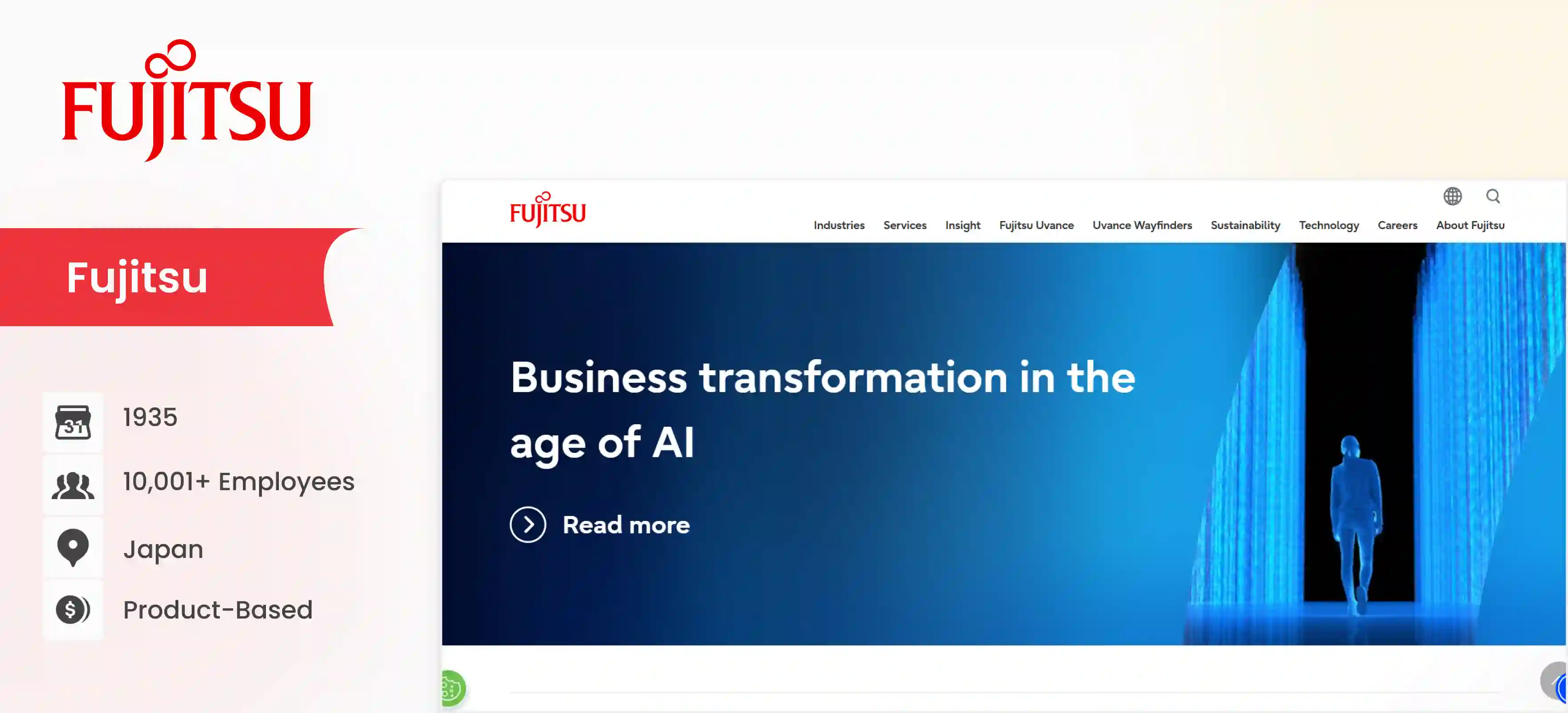
Deloitte competes with IBM for the largest and most complex enterprise update projects. While IBM often leads with its technological skill, Deloitte frequently starts client relationships through its business, financial, and advisory services.
Like other top-tier companies similar to IBM, Deloitte has a deep, collaborative partnership with IBM as well.
It partners to sell IBM technology while competing fiercely to lead the projects that use that technology.
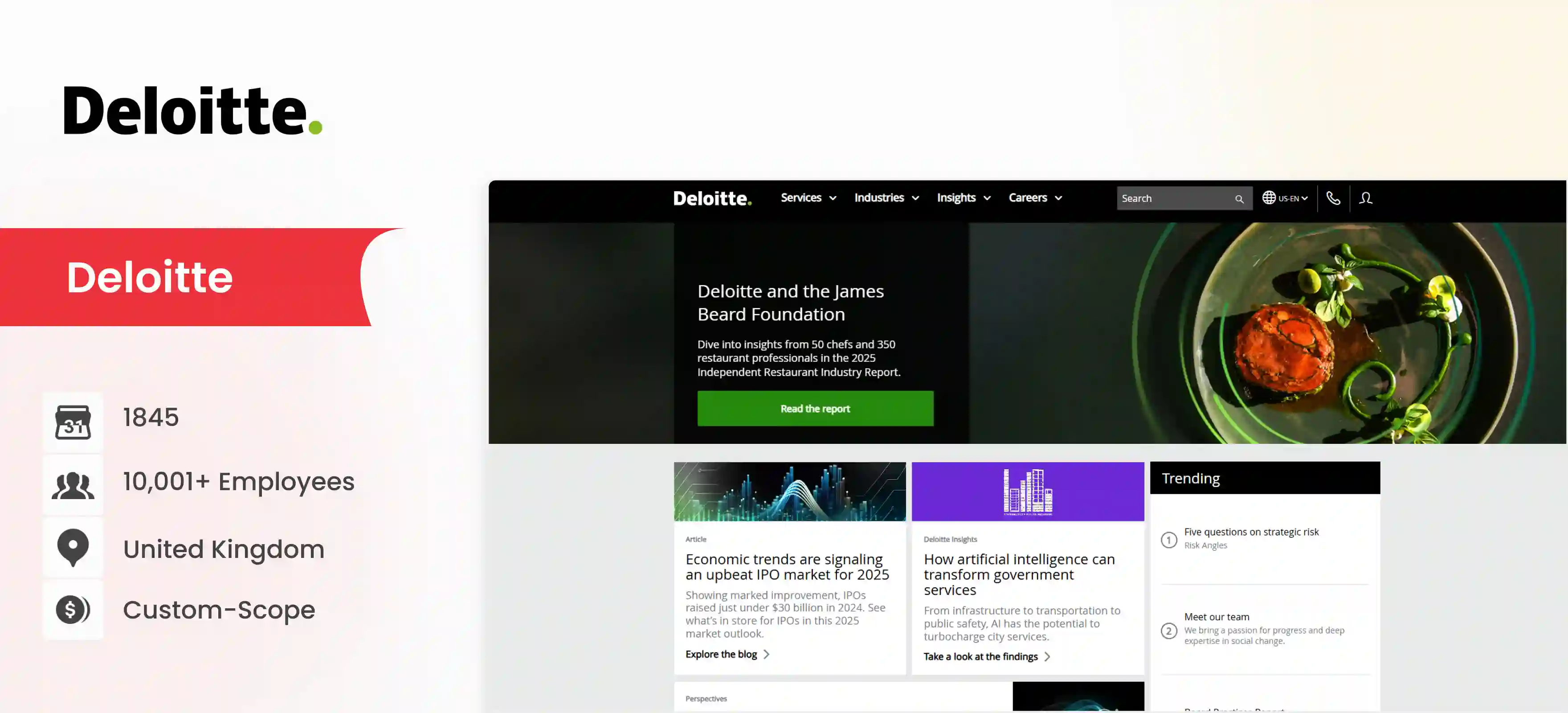
Tata Consultancy Services (TCS) is a division of India's largest multinational conglomerate, the Tata Group. It is a pioneer in the Indian IT industry.
The relationship between TCS and IBM is a prime example of deep partnership and competition. At the same time, TCS competes directly with IBM Consulting for the high-value services built on them.
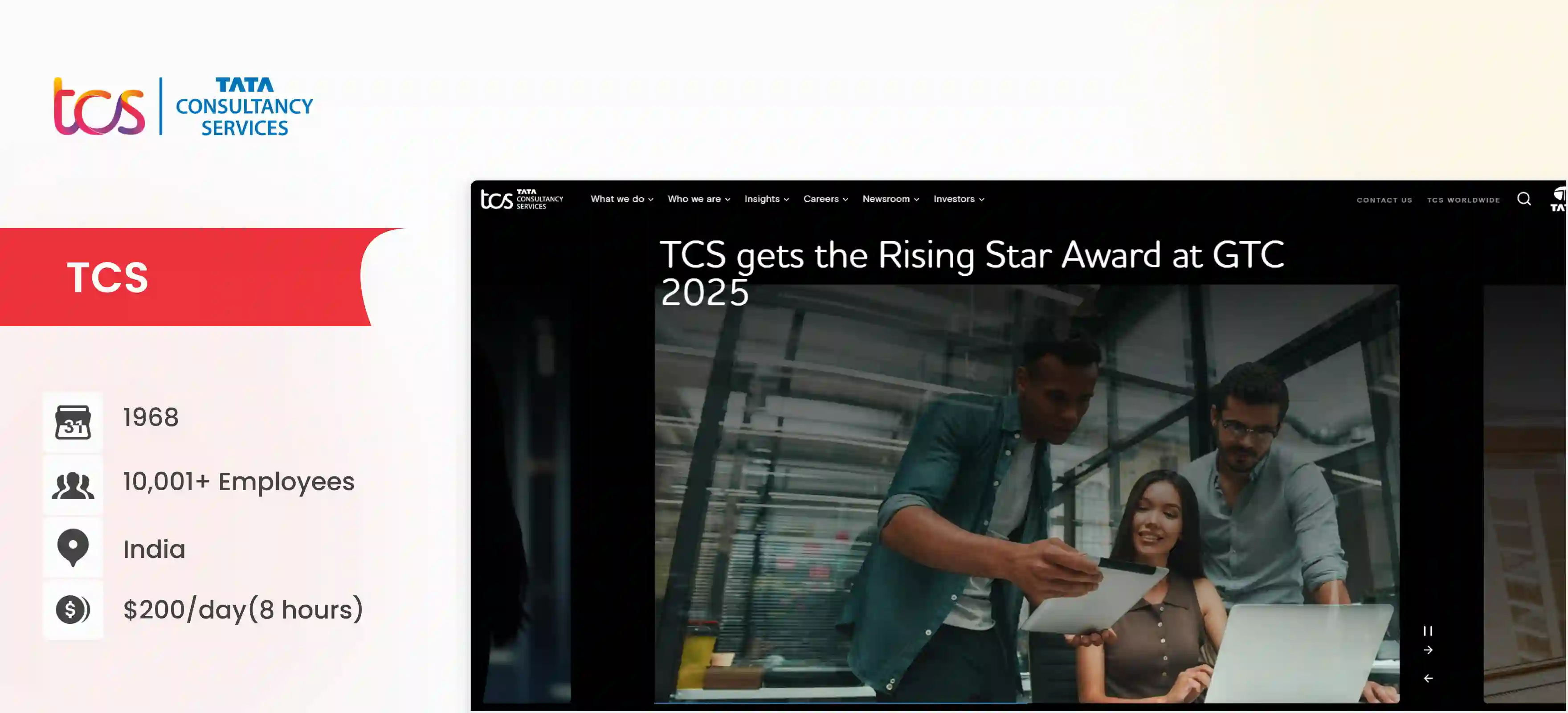
Wipro has one of the most unique origin stories. It was formed in 1945 as a maker of vegetable oil before shifting to the IT industry in the 1970s and 80s. Today, it is a global IT services powerhouse and a key member of the Indian Heritage Powerhouses group.
Wipro is one of the top IBM competitors as both a direct seller of IT services and a key partner. The two companies have a deep-rooted partnership of over 20 years. In fact, Wipro holds the status of an IBM Platinum Business Partner.
This includes building AI solutions using IBM Watson and hybrid cloud products with Red Hat OpenShift.

Infosys was founded in 1981 with a starting capital of just $250. It was a pioneer of the Global Delivery Model, which changed the IT services industry. It competes directly with IBM for large-scale IT services and digital update contracts.
Like its Indian peers, Infosys has a strong 360° relationship with IBM as a Premier Partner. Their collaboration is very active in the Business Process Management (BPM) area.
This creates a situation where Infosys is a direct rival to IBM's own Global Business Services unit. At the same time, it acts as a key partner for IBM's software.
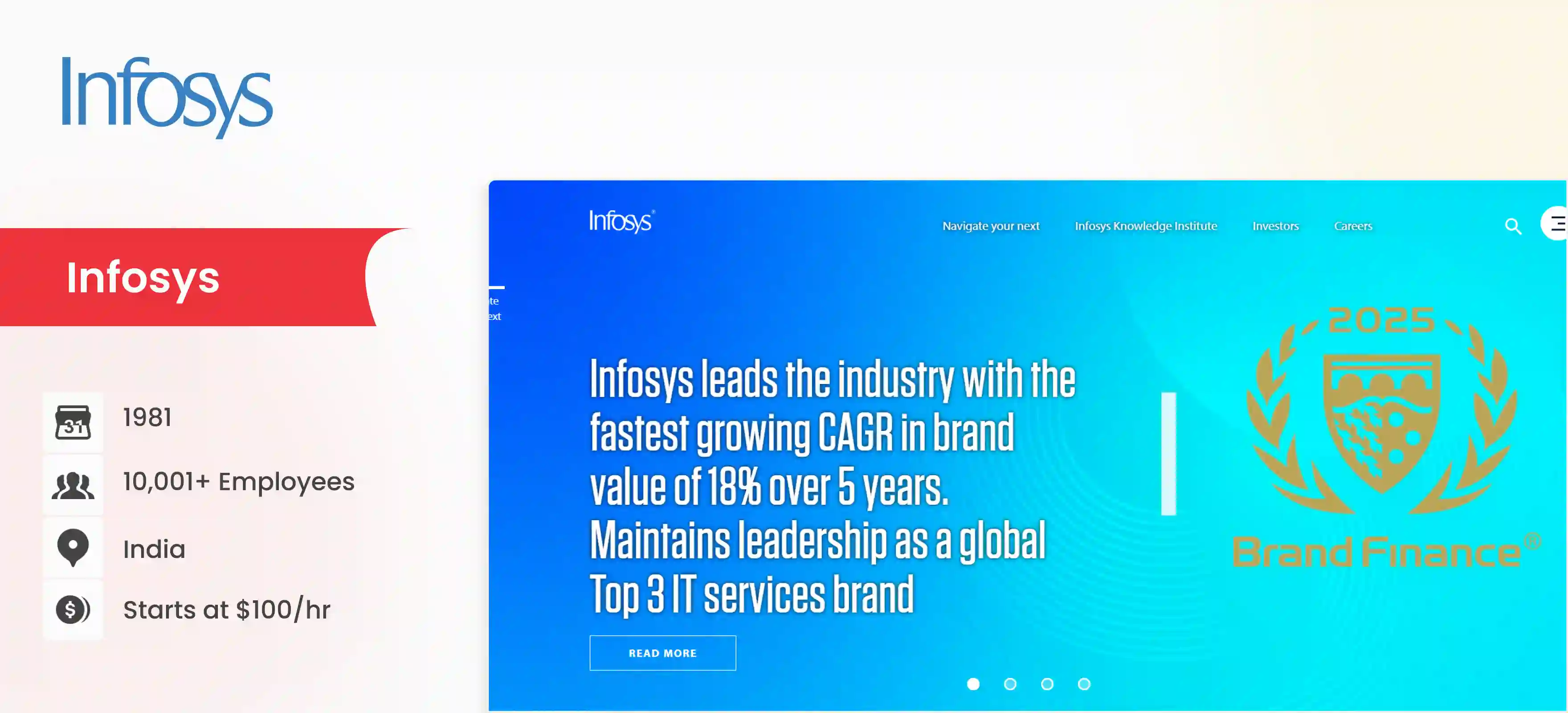
Choosing an alternative to IBM means you must weigh several important factors. These factors go beyond a simple list of services. The competitive field has different methods, and the best IBM competitors for your needs depend on a client's specific priorities or scale.
Entrans has a flexible engagement model when compared to other IBM competitors. We increase or decrease team sizes based on YOUR project needs. Also, unlike IBM, Entrans has the bandwidth, time, and looks to create value over just the minimum required hours or contract sizes.
With Fortune 500 companies as clients, as well as our own agentic AI agent, which we built Thunai AI from POC to a profitable Enterprise AI agent (And won product of the day on ProductHunt).
Moreover, our certified developers and technical experts work across 40+ ecosystems and tech stacks to deliver value.
Want to see how we can help your project? Book a free consultation call!
Accenture is likely IBM's most direct and strongest competitor in the consulting field. Both companies compete for the same large-scale, multi-year digital update contracts that are at the top of the market.
Yes, Amazon is a major competitor to IBM, especially in the cloud computing market. Amazon Web Services (AWS) competes directly with IBM Cloud for enterprise customers. This competition extends to related areas like artificial intelligence and data analytics services that run on their respective cloud platforms.
No, PwC is not owned by IBM. They are separate and independent firms. However, there is an important historical connection. In 2002, IBM purchased PwC's consulting division, PwC Consulting, for approximately $3.5 billion. That acquisition became the foundation of what is now IBM Consulting. PwC has since rebuilt its own consulting and advisory practice.
Deciding if PwC or IBM is better depends on a company's specific needs. PwC's strengths often come from its history in accounting and professional services, making it strong in business advisory, financial consulting, and risk management. The better choice is based on whether the project is primarily a business problem or a technology challenge.
IBM owns more than 15 companies. Over the years, it has acquired many businesses to grow its abilities in software and services. Some of its most well-known subsidiaries include Red Hat, an open-source software company, and The Weather Company.






